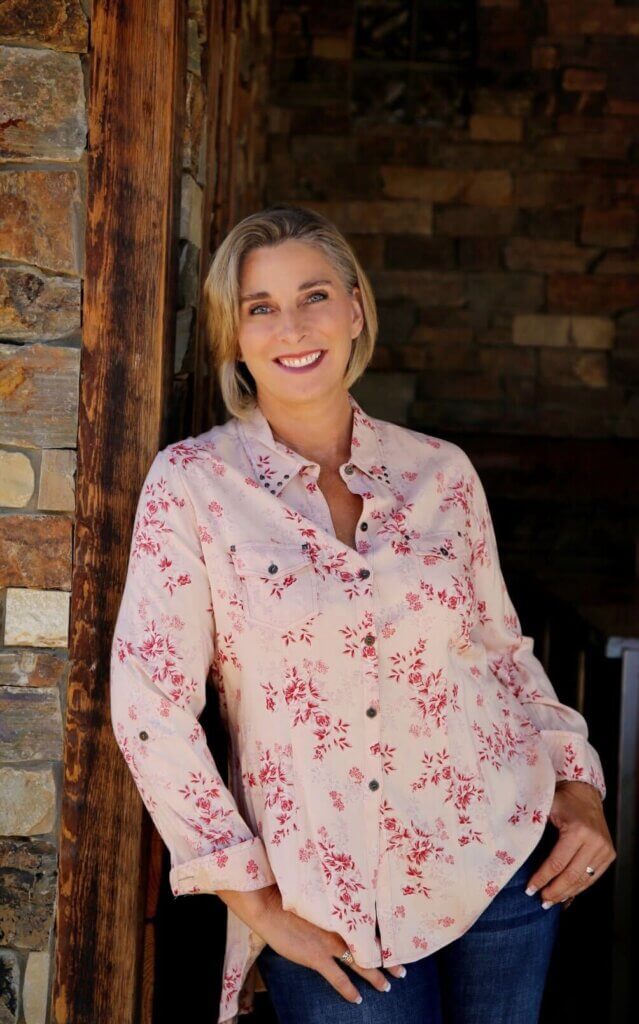Are you tough enough to try a little tenderness? Under the Hard Hat met with Cory Fisk, founder of Construction Management Online, to explore the importance of soft skills in the construction industry. We discussed the challenges and resistance faced, particularly by women, and Fisk offers tremendous insights into fostering a more understanding and effective workplace.
Under the Hard Hat: Cory, what are you seeing on job sites? Do “soft skills” have a place in construction?

Cory Fisk: It’s definitely something I’ve heard people complain about. They’d see these gruff guys out in the field that were typically short-tempered, always throwing their hard hats around.
I had a sense that people didn’t feel they could communicate with people in the construction industry, that they needed more “soft skills”.
Growing up in the industry, I felt that I had to conform, I had to stand my ground. I needed to ensure nobody could push me around. I was able to do it, and I was able to do it really well, but it wasn’t fun. It was draining. It used more energy. It was more stressful. It was higher anxiety because you’re not working in flow. You’re working in resistance the entire time. Soft skills will be undeniably critical in the collaborative effort between those who grew up in the “old ways” of authoritative leadership and those new to the construction workforce.
UTHH: So soft skills aren’t just about being “nicer.”
CF: We can be kind and we can be nice and still not get work done. People can fake being nice. As a teacher, I knew that there were different learning styles, and I needed to have three or four different ways of presenting information to ensure the correct interpretation met each person’s perspective. It was really about human design and human behavior. This is something that has been completely foreign to the construction industry.
The key issue is recognizing that soft skills are a practiced skill set, typically trained early in a person’s development. If you don’t practice it, you’re not going to master it. Our internal human design operates independently of external influences. Understanding that fear triggers freeze, flight, or fight responses, we can shift our mindset to focus on faith and positivity. This enables us to develop the necessary skills to interact and engage with others effectively.
UTHH: That’s quite a shift in conventional thinking.
CF: Reading human behavior allows us to identify and be aware of our response to incoming information, and then respond to that information. We can either respond in the way that we’re used to communicating, or we can choose to make small, two-degree changes that lead or guide us toward a better way of communicating. To be successful, it’s really something that needs to be seeded as small opportunities to educate and to teach, because everyone is so set in their ways that they are either responding based on outside influences or life experiences, or they’re doing it instinctually. For most of us in construction, it means our reactions are reactionary, rooted in fear, stress or anxiety.
UTHH: That’s something we’re very good at as women; reading people and meeting them where they live. What resistance have you met with? How did you work around it?
CF: I think it’s a huge reason why women are so successful in the construction industry. Many men are focused on the production and the profitability, while women tend to see the big picture, trying to head off problems early instead of having to deal with them in the future. Remember, women in construction are typically heavier in their masculine energy, which provides a better communication line between us and our male counterparts.
For me, most of the resistance that I felt was because I was a woman, I was young, and therefore I couldn’t have the right amount of experience. My challenge was to help people understand the importance of staying open to learning and to education so new and future hires could continue building their foundational baseline knowledge and creating the opportunity for vertical growth in the construction industry.
UTHH: What would you say are the top three “soft skills,” and how could we use them to circumvent some of these long-held traditions and beliefs?
CF: Awareness is definitely number one. That doesn’t mean you hear a backup bell from a piece of equipment coming at you. Awareness means that you are tuned in to your subconscious mind and the voice inside of you that is telling you this is not the right thing to do. Having that heightened awareness allows you to read the behavior of someone receiving the information that you’re giving and recognize whether or not they’re hearing anything so you can adjust how you’re speaking
Second is communication, not just talking but actively listening. Everyone forgets how important listening is to communication. We see this when, for example, architects are designing something and they think that they hear what the owner wants, but then their own personal innovation and creativity takes over, and the client ends up with a design that doesn’t meet the budget or doesn’t meet the needs of the users. As a project manager, it’s so incredibly important for us to have a sharp listening ear so that we can be the interpreter or be able to ask questions for clarity.
UTHH: Listening can be hard in any environment. I imagine it’s really challenging in your field.
CF: It’s so hard right now. We have five generations of construction workers with different dialects, different modes of communication; we literally have different definitions for the words that we’re using. The potential for miscommunication between one generation to another is very difficult. We have to be very intentional with our language.
UTHH: What’s the third soft skill?
The third skill would be mindset and leadership. A lot of us come into construction with limiting beliefs. Most people believe that because I’m a woman, I’m going to have a hard time breaking into this male-majority industry, but in my case, I never felt like I did not belong because my dad raised me to be comfortable in a man’s world. That isn’t to say that I did not face judgment, constant challenges of my expertise, but those incidents spoke more about that person and their own insecurities.
Construction has such a low entry level—you just need hands and feet. Because of this, construction offers opportunities to those who may have dealt with addiction, homelessness, prison, even PTSD. Because of their life experiences, they already have those limiting beliefs about their worth; “I only deserve this job,” “I only deserve to be working with my hands and being a grunt or digging a trench.” Helping those people shift their mindset to see the opportunities available to them can be really empowering. We can all be a part of this industry. It’s just a matter of redirecting your thinking and being open to those opportunities.
Empathy is hard to give if you haven’t received it yourself.
UTHH: Are newer, younger generations of construction workers more adept at soft skills?
CF: It’s funny, older generations didn’t have the kind of hand-holding that younger generations require. There’s some tough love happening there, and with it a lack of understanding of this current workforce. The older generation had to figure it out. And in the construction world, If you’re not tough, you get filtered out.
There’s a lot of tough cookies at the top of the ladder who may not have been given empathy in the past. But now, as mentors, they are in a unique position to let younger workers lean on their experience so they don’t have to endure the same battle scars. Having more empathy and understanding is definitely going to help both sides, because empathy is hard to give if you haven’t received it yourself.
UTHH: Across disciplines, whether we’re talking about a foreman or a managing lead at an engineering firm or an architect or an older generation of people in construction, what are the things they need to know to start implementing a more understanding workplace?
CF: Not everybody needs to do it their way in order for it to be done right. It’s really hard for someone who’s been doing something the same way and has been very successful at it. It’s hard for them to recognize that other people might have different paths or ideas. Sometimes that path is longer, sometimes that path is more difficult, sometimes it’s easier. But the experience is in the journey, not in the end result. This is why we have to lean on the experience of others when we’re designing our destination map.
The other thing I would say is that older generations in construction need to learn patience. Doing things ourselves just to ‘get it done’ robs someone of the opportunity to learn and grow. We’re not allowing trainees to make those necessary mistakes to broaden their foundation and carry the baton.
UTHH: What have you seen, if anything, in terms of improvement?
CF: I was moderating a panel the other day, and there was a woman that brought something up that made complete sense. Her company did some really deep research and thinking when bringing everyone together for a training meeting. There was a lot of thoughtful detail; when looking at the meeting location, they’d say “Okay, the guys are going to be coming in with dirty boots. We don’t want them to feel bad. We’re going to have concrete floors. Or maybe we’ll have the guys that normally wear suits dress down for informal Friday that day.” They were trying to make the meeting place as neutral as possible for all these diverse, complex people so that the focus was on the people.
I thought it was a really creative way of trying to address some of these things that make people feel inferior or not worthy, some of these mindset challenges that need to be reestablished. Because that affects output, it affects time and money and all of the things that are important to get the job done. Ultimately, soft skills make your work better, and more importantly, make you better.



4 comments